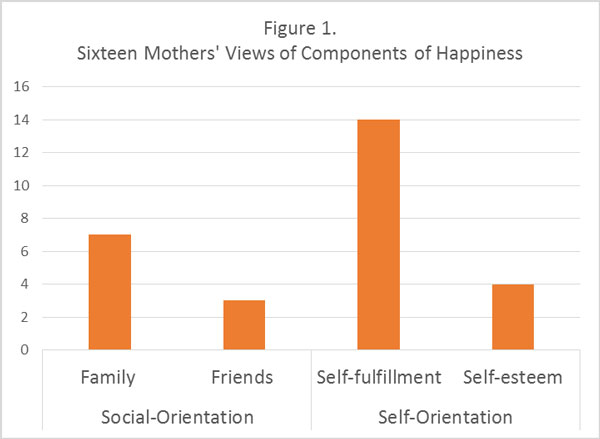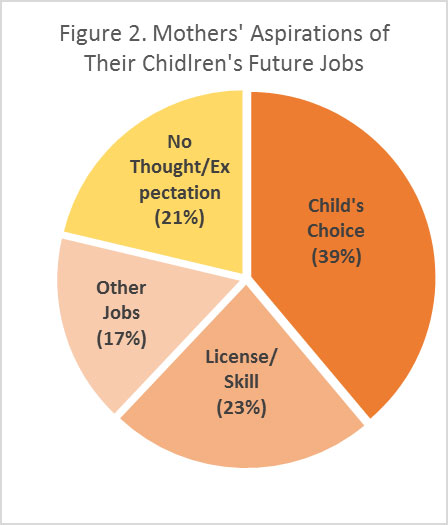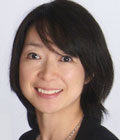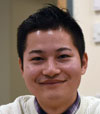Do Japanese parents generally hold high aspirations for their children's education? Japan is a so-called "academic credentials society" (gakureki shakai). As in many other industrial countries, in Japan, academic attainment is thought to lead to more job opportunities and higher income (Kariya, 1995). However, Japan's rate of college attendance has been low compared to other industrialized countries. For example, in 2016 the rate of four-year university enrollment among high school graduates including those who waited for a year (rōnin) was about 52% (57% including junior college). The entry rate into tertiary education in Japan (52% in 2012) was much lower than the OECD average (58%) and in other countries such as South Korea (69%) or United States (71%) (OECD, 2014). The rate of university enrollment including those who waited for a year (rōnin) in Japan has increased from 30% (43% including junior college) in 1994 to 40% in 2001, but has stayed between 50% and 52% since 2009 (MEXT, 2016).
The relatively low rate of university attendance seems to reflect Japanese parents' overall low expectations regarding their children's educational attainment. Several international studies have revealed that Japanese parents tend to hold lower expectations of their children's education than parents in other countries. In one international survey, Japanese parents demonstrated lower educational expectations compared to parents in France, South Korea, Thailand, and the United States (National Women's Education Center, 2007). While more than 70% of the parents in these countries aspired for a college education or beyond for their children, less than half (47%) of the Japanese parents did so. Japanese parents' overall low aspirations for their children's education might be partially explained by gender gaps in their expectations: Japanese parents tend to hold low educational expectations for their daughters as reported in previous CRN articles (Holloway, Yamamoto, & Suzuki, 2005; Yamamoto & Watanabe, 2016). The prolonged economic recession could also be a factor explaining Japanese parents' relatively low educational expectations (Yamamoto, 2015).
In this paper, we examine Japanese mothers' perceptions of happiness in relation to their expectations of their children's education. LeVine and White (1986) argue that parents share universal goals even though they raise their children differently across cultures. Survival, economic self-reliance, and internalization of cultural values are major goals in child rearing. At the same time, in economically developed societies where a child's survival is assured and children rarely contribute to family economics, children's value is not economic but sentimental (Zelizer, 1985). In those societies, parents are likely to value a sense of well-being and happiness in addition to achievement in their children's development and future. However, how parents view "happiness" could differ across countries.
Happiness or well-being is one of the central themes and outcomes studied in psychology and child development (see Oishi, 2009). In particular, promoting children's well-being and happiness is a critical agenda for researchers. However, little is known about how parents conceptualize happiness and happy future lives for their children and how such perceptions are intertwined with their educational expectations. Their concepts of happiness and relation to educational achievement might partially explain Japanese parents' low expectations of their children's education. In other words, Japanese mothers may not perceive that academic attainment is essential for children's future happy lives. Previous studies on happiness demonstrated that Japanese tend to view human relationships as more critical than self-esteem and achievement as Americans index (Oishi, 2009). However, it has been argued that due to globalization, Japanese have also increasingly become individualistic (Ogihara & Uchida, 2014). How do current Japanese mothers perceive happiness and imagine happy lives for their children? How are such perceptions related to their expectations of their children's education?
Method
To elicit mothers' views of happiness, we qualitatively analyzed in-depth interviews conducted with 16 mothers. These 16 mothers were selected from 109 mothers who participated in the original study that examined educational and family processes in Japan. In 2013 and 2014, 109 mothers and their first grade children attending public school (6 or 7 years old) in Osaka prefecture participated in this study (For details of this study, see Yamamoto & Watanabe, 2016). To examine children and parents from diverse backgrounds, we recruited families from relatively newly developed residential areas, downtown areas where old and young people live (shitamachi), and suburbs.
Among the 16 families, three had one child; five had two children; eight had three or more. Half of the target children (first graders in the original study) were boys and half were girls. Half of the mothers had a Bachelor's or Associate degree and half did not. The first author conducted in-depth interviews with the 16 mothers and their children every summer from 2013 to 2016. Interview questions were semi-structured with some open-ended components, and the interviews ranged from 1 to 2 hours. All interviews were audio-recorded and transcribed verbatim in Japanese.
We analyzed the interview transcriptions qualitatively. To facilitate data coding, grouping, and comparing, we used NVivo, a qualitative data analysis software. First, we broadly sorted passages in the transcripts related to happiness and well-being. Then we conducted content analysis to identify key themes and motifs related to happiness and well-being as commonly described by the mothers. We then explored distinct concepts and themes. We examined the meaning within the concepts, analyzed cross-case patterns, and tested the appropriateness of the induced themes (Patton, 2015). We also conducted case analyses to understand each mother's perceptions related to child rearing and education, developmental goals for their children, and their lives and well-being. In this paper, we report the concepts related to happiness mainly identified in the qualitative analyses.
Perceptions of a Happy Life among Mothers in Osaka
In 2016 when the children were fourth graders, we asked the 16 mothers to share their views related to happiness. To the questions, "In your view, what makes people happy?" and "How do you imagine a happy life?" the mothers reported multifaceted views of a happy life. They also reported various elements that can bring happy lives to their children, sometimes by reflecting their own lives. From the analysis of the 16 mothers' interviews, two distinct themes consisting of two sub-themes emerged: social-orientation and self-orientation.
Social-Orientation
The first theme, social-orientation, was in the realm of human relationships and connections (tsunagari), such as relationships with families and friends. As Figure 1 demonstrates, comments related to social-orientation appeared in 10 mothers' narratives. For example, two mothers articulated a sense of connection with others and ties with people as essential components of happy life as follows:
When you think you are alone, that doesn't make you feel happy. So the circumstances where someone is around may make you feel happy.... It doesn't need to be your spouse. If my son always has his own place (ibasho), and is surrounded by people, he should be happy. (A 41-year-old stay-at-home mother with 3 children)*1
Ties with people (hito tono tsunagari). After all, bonding with people, like with family or with friends, is the most important thing, I think. (A 46 year-old part-time working mother with one child)
 |
Some women specifically contrasted happy family life with wealth or achievement, as a 45-year-old part-time working mother with 2 children said,
even if you work hard and achieve high status, when you go home and if there is no family to feel relaxed with, don't you think that kind of life is boring?
Mothers who had financial difficulties mentioned the importance of having basic money, or "not being poor." As LeVine and White (1986) argue, the mothers in our study recognized that survival and securing an economic means of life are critical for their children to build happy lives. However, they emphasize that relationships with others, especially having good family lives are more critical and valuable than being wealthy.
Of course, you need money [to be happy]. But when I look around or hear various stories at my part-time workplace, I hear stories where the mother is out working and the child has to buy lunch with the money she leaves. That sounds lonely even if they are wealthy. So I think that being able to spend time together is the most important thing. Money is important, of course, but family, how can I say.....it's not money. (A 33-year-old part-time working mother with 3 children)
As Japan is an economically developed country, the mothers may view survival and safety as guaranteed to some extent regardless of the economic status attained by individuals. Thus, parents may not consider economic achievement to be a priority or the key element of a happy life. While some mothers mentioned that it is not necessary for their children to marry to be happy as long as they have good friends, others mentioned that marrying and having children are the essence of a happy life. The mothers' mention of a happy family life reflected their own sense of happiness reflected in their marriages. Mothers who were satisfied in relationships with their husbands tended to report family life as an essence of happiness.
For me, I married and had children, and I was able to have three children. And I feel so happy (shiawase) that I see my children growing. I have various concerns and often complain about them. But when our kids are sleeping, I often feel that I am happy. I can also continue the work I like....Because I feel that I am happy, I want my daughter to have a child. I hope she will have a job she likes and will meet a nice man. (A 33-year-old part-time working mother with 3 children)
On the other hand, mothers who were not satisfied in their relationships with their husbands tended not to index family relationships as an essence of a happy life. These mothers tended to focus on personal elements rather than interpersonal elements when talking about happiness as we describe in the next section.
Self-Orientation
The mothers mentioned themes regarding the self, such as pursuing what they want to do and feeling satisfied with oneself, as essences of happiness. Interestingly, more mothers mentioned this theme than social-oriented themes (Figure 1). Within the category of self-orientation, we identified two sub-themes, "self-fulfillment (e.g., pursuing what you want to do)" and "self-esteem (e.g., liking yourself)." Especially salient was the mothers' mention of the theme related to self-fulfillment: their children should pursue what they want to do and what they are interested in (Figure 1). For example, to the question, "What do you think is a happy life from your viewpoint?" a 44-year-old full-time working mother with two daughters and one son responded as follows:
Well, probably when she can do what she likes. Whether she can financially support herself or not, when she can do what she wants to pursue, I think that brings happiness.
The fundamental belief here is that their children have a choice. They can explore, choose, and pursue what they want to do in the future. As another mother noted, "he should find what he likes, look for what he wants to do, and pursue that interest," many mothers mentioned that pursuing one's interest, as a future job or hobby, is an essential component of a happy life. This view is supported by a survey we conducted with the 109 mothers: in response to the question, "What occupation do you want your child to have?" about 40% of the mothers stated "what they want or like to do," indicating children's self-fulfillment/choice as a major factor (see Figure 2). About 23% of the mothers wanted their children to get a job that requires a specific skill or license such as nursing.
 |
Some noted the importance of "exploration" and "experiences" to expand children's choice and opportunities. In these mother's views, gaining diverse experiences from a young age would enable children to explore various activities from which they can choose.
I want to have my children take various lessons and experience various things. Unless they try these things, they won't know if it suits them or not, will they? So I want to increase the number [of those lessons and experiences]. So I sent him to a science lab and a computer programming workshop. You know, nowadays these experiences (taiken) are possible from when they are of elementary school age. (A 39-year-old part-time working mother with 2 children)
Another self-oriented sub-theme was related to "self-esteem." As this mother noted, happiness would depend on liking oneself, enjoying one's life, and self-esteem.
Umm..I wonder what [a happy life is]. Really, it would depend on how you and others can enjoy it...I keep talking about enjoyment, but how..liking yourself and spending your daily life. (A 40-year-old self-employed mother with 2 children)
In response to the question, "how can one like oneself?" this mother said, "You have to recognize that...that you live with yourself." As happiness is often defined as internal feelings, some mothers noted that life satisfaction and happiness would depend on internal feelings and individual views. The focus was placed on understanding oneself and building goals or expectations not based on external judgment.
A happy life is when one can be satisfied with oneself. That makes people feel the happiest. It's endless when you compare happy marriage or economic prosperity. So without being influenced by such an external factor, when you know your position (mino hodo wo shiru), or hold realistic expectations (mino take), and when one lives a life to be satisfied with oneself, that will bring the most happiness. (A 41-year-old stay-at-home mother with 3 children)
This mother's narrative reveals her conviction that self-actualization, self-evaluation, and self-judgment sometimes mean building realistic expectations, which is an important process to achieve life satisfaction. One may think that such ostensibly self-centered values or goals may contradict the importance of interpersonal relationships traditionally valued in Japanese society. In mothers' talks, social-orientation and personal-orientation did not appear to cause tension. Rather they were intertwined with each other to build a platform for a happy life as this mother noted:
Everything is important. Everything....There are things you can learn through work. There are things you can receive from your children and wife after marrying and feeling supported....And then doing what you like [is important]. When you do what you like, you feel refreshed. I hope everything will go well for him. (A 33-year-old part-time working mother with 3 children)
Interestingly, self-oriented themes, such as pursuing their interests and goals, were not mentioned in relation to achievement or success. These mothers spoke of self-fulfillment and self-esteem as something derived from one's internal feelings and actualization, not from economic or status achievement. Self-oriented themes mentioned by the mothers were not connected with higher education: they did not necessarily perceive college education as a pathway to bring more choice or exploration; nor did they necessarily view college education as an essence of a happy life. Most mothers, especially mothers with daughters and mothers without college education, stated that their children could work or pursue vocational training rather than college education if their children were not interested in academic subjects.
Discussion
In this exploratory study, we focused on examining mothers' perceptions of happiness as one element that could explain Japanese mothers' relatively low expectations and aspirations for their children's education. In previous studies on happiness, Japanese were found to focus on interpersonal connections/relationships compared to Americans who tend to focus on personal achievement in their perceptions of what constitutes happiness (Uchida & Oishi, 2016). Uchida and Oishi (2016) argue that in Japan, "the pursuit of happiness is not seen as a thing that the individuals can pursue, but is experienced within shared relationships" (p. 128). At the same time, globalization has affected Japanese conceptualizations of happiness. Increasing numbers of Japanese value individual and personal goals as a critical component of well-being and life satisfaction (Ogihara & Uchida, 2014). Our analysis revealed that Japanese mothers' perceptions of happiness were more nuanced and complex than the dichotomy of social-orientation vs. self-orientation. Most mothers expressed social and interpersonal relationships as valuable but they also emphasized self-oriented goals such as self-fulfillment and self-esteem as essences of happiness. In previous studies, self-oriented goals were often contrasted with interpersonal relations as uniquely exclusive. In the mothers' views, interpersonal and personal orientations were mutually dependent. Connections, ties, and bonding, especially with family members, appeared as a major component of happy life when the mothers in this study talked about their children's future. At the same time, finding one's goals and pursing what one likes to do also appeared to be salient in their narratives about happiness.
Higher education was rarely mentioned in relation to happiness. To have a happy life through interpersonal connections and bonding, academic success may not be viewed as essential. Interestingly, the self-oriented theme was also not necessarily tied with personal achievement and success in the mothers' narratives. The emphasis was placed on the process and moment rather than outcomes. Whatever it is, it is important to find and pursue what their children like to do. To find what they want to do, children need to have various experiences and opportunities to explore their ambitions. However, these opportunities were often viewed to be available outside of academic learning, especially among mothers who did not attend college. Some mothers may not view Japanese universities as providing ample opportunities to help their children explore various interests, develop new interests, and choose their future path. While this study is still exploratory and preliminary, its findings can help us understand why Japanese parents hold relatively low expectations of their children's education. Even though our research focused on mothers in Osaka, results of this study may have some alarming implications for the meaning of schooling and the value of higher education in Japan as well.
-
*1: Mothers' ages and work status are based on information obtained in 2016 when their children attended fourth grade.
References
- Holloway, S. D., Yamamoto, Y., & Suzuki, S. (2005). Exploring the gender gap: Women speak out about working and raising children in contemporary Japan. Child Research Net.
http://www.childresearch.net/papers/
parenting/2005_03.html - Kariya, T. (2009). Kyōiku to byōdō [Education and equality]. Chūkō shinsho.
- LeVine, R. A., & White, M. I. (1986). Human conditions: The cultural basis of educational developments. New York & London: Routledge & Kegan Paul.
- MEXT. (2016). Basic school survey. http://www.mext.go.jp/b_menu/toukei/
chousa01/kihon/1267995.htm - National Women's Education Center. (2007). Heisei 16 nendo 17 nendo katei kyōikuni kansuru kokusai hikaku chōsa hōkokusho. Retrieved from https://www.nwec.jp/about/publish/2006/
ndpk5s0000000zft.html - OECD. (2014). Education at a glance 2014. http://www.keepeek.com/Digital-Asset-Management/oecd/education/education-at-a-glance-2014_eag-2014-en#page340
- Ogihara & Uchida, Y. (2014). Does individualism bring happiness? Negative effects of individualism on interpersonal relationships and happiness. Frontiers in Psychology, 5, 135.
- Oishi, S. (2009). Shiawase wo kagaku suru: Shinrigaku kara wakatta koto [Science of happiness: Knowledge gained from psychology]. Shinyōsha.
- Patton, M. Q. (2015). Qualitative research & evaluation methods (Fourth edition). Thousand Oaks, CA: SAGE Publications.
- Uchida, Y., & Oishi, S. (2016). The happiness of individuals and the collective. Japanese Psychological Research, 58(1), 125-141.
- Yamamoto, Y. (2015). Social class and Japanese mothers' support for young children's education: A qualitative study. Journal of Early Childhood Research, 13(2), 165-180.
- Yamamoto, Y., & Watanabe, Y. (2016). Revisiting the gender gap: Japanese mothers' views of their children's education, work, and future. Child Research Net. http://www.childresearch.net/papers/
parenting/2016_01.html - Zelizer, V. A. (1985). Pricing the priceless child: The changing social value of children. New Jersey: Princeton University Press.
Acknowledgment: This research was assisted by a grant from the Abe Fellowship administered by the Social Science Research Council and the American Council of Learned Societies in cooperation with and with funds provided by the Japan Foundation.



 Yoko Yamamoto
Yoko Yamamoto Shosuke Hasegawa
Shosuke Hasegawa










